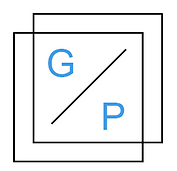3. Starting
- Grailing Press

- Apr 8, 2024
- 2 min read
The ironic inversion that a poem about waste and desolation and parched land and even total destruction (hooded hordes), should have “breeding” in the first line. The paradox of breeding out of “dead” land. The inversion of Chaucer, and even nature, and no longer seeing April as a month for rejuvenation, pilgrimage, and, hopefully, salvation; but seeing it in Eliot as our cruelest, most terrifying month. The entire feel of the poem, the universal, is again so prevalent in all the particulars; like each particular carries the DNA of the whole poem with it.

[As an aside, there is the witty observation that Chaucer reports April to be among the sweetest months and the time of commencing redemption, perhaps merely because the weather for his countrymen is just turning better after a brutal winter and muddy thaw. So we may have pilgrims in Chaucer, and hearty English folk to boot, but not hearty or pious enough to seek pilgrimage to Canterbury in, say, mid-December. So it’s pilgrimage, Chaucer gives us, but without the ordeal of bad weather. We might be impressed to see Mrs. Of Bathe out there in snowdrifts eating dried tubers, but alas, Chaucerian England waited for warmer weather to go on pilgrimage, and maybe we slightly mark them down—vis-à-vis piety—for this approach.]


